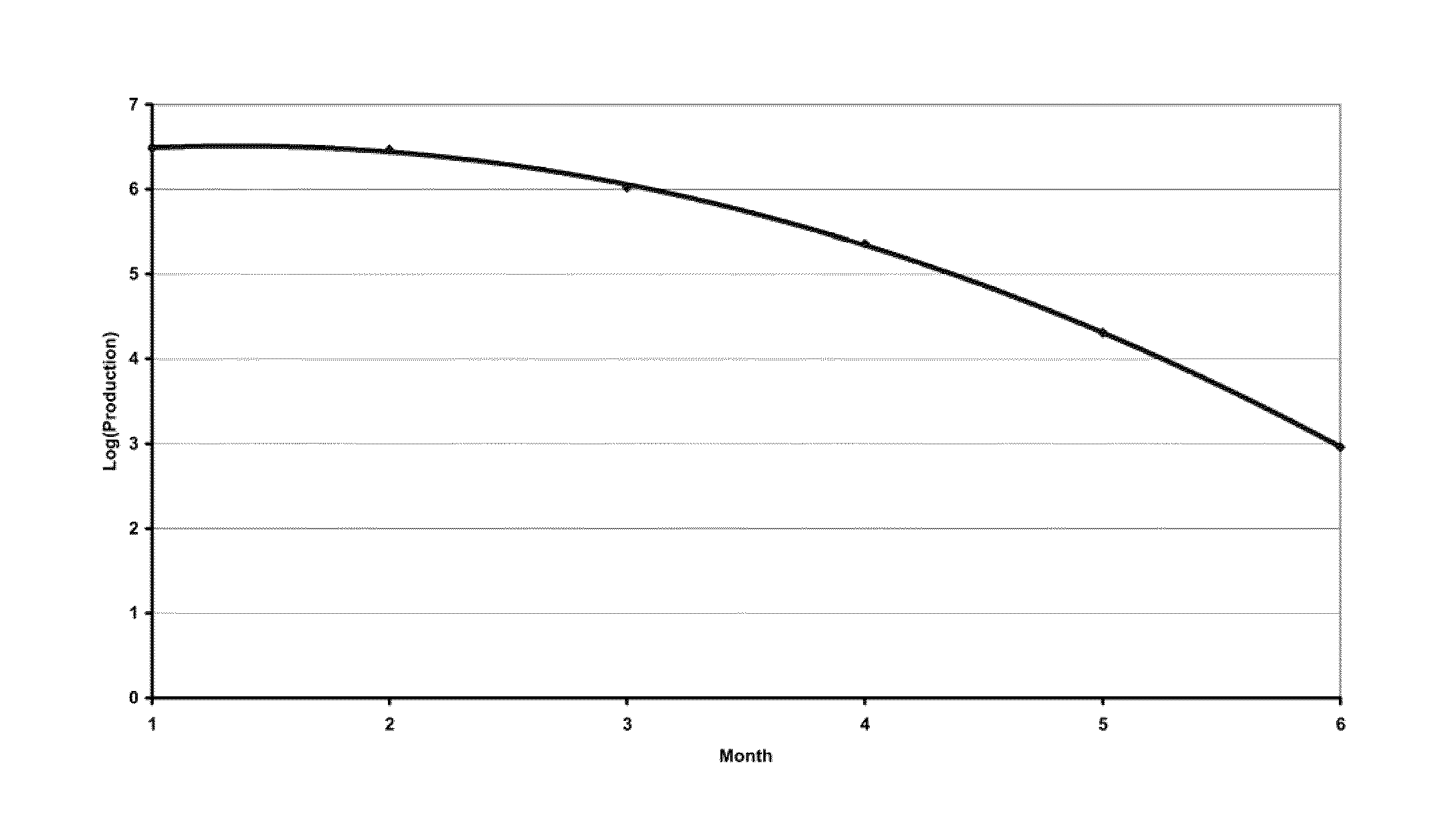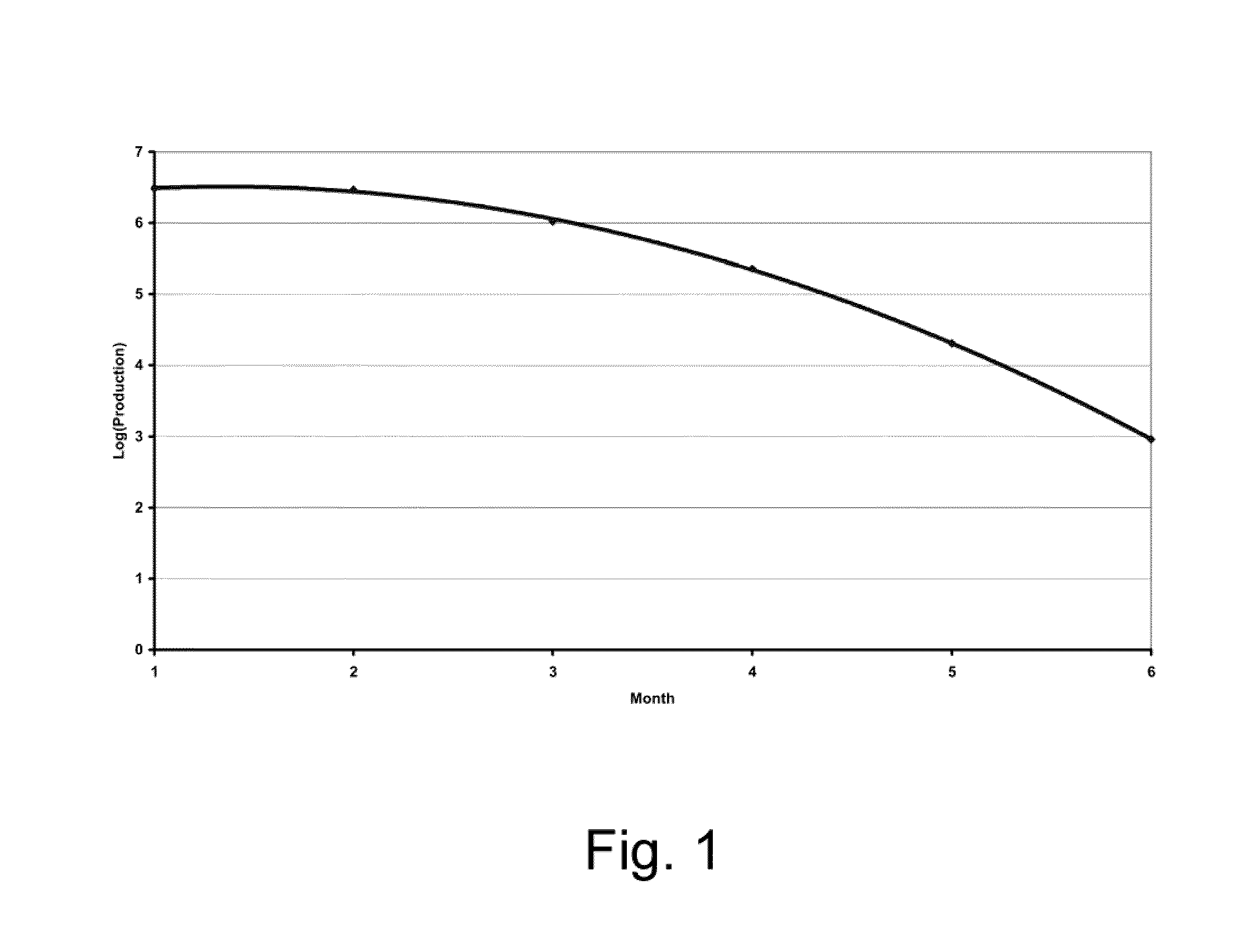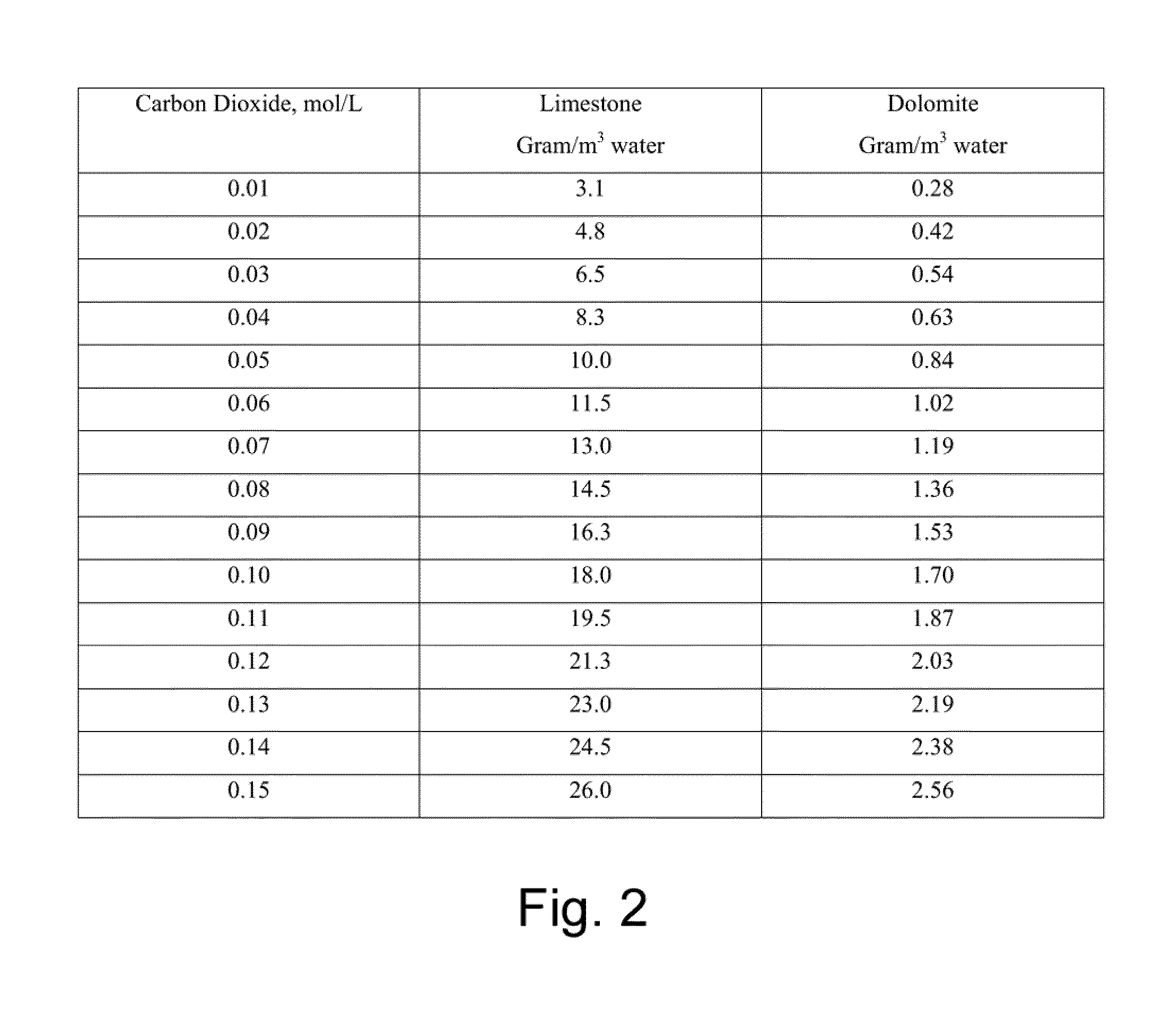Gas-assisted process for in-situ bitumen recovery from carbonate reservoirs
a carbonate reservoir and gas-assisted technology, which is applied in the direction of fluid removal, insulation, borehole/well accessories, etc., can solve the problems of not being able to prove success in bitumen reservoirs and the effect of oil production rate, and achieve the effect of suppressing the dissolution-re-precipitation effect of carbonates
- Summary
- Abstract
- Description
- Claims
- Application Information
AI Technical Summary
Benefits of technology
Problems solved by technology
Method used
Image
Examples
example steps
[0092 to Implementation
[0093]For the purpose of implementation of the invention, the method may include the following steps:
[0094]Obtain knowledge of the type of carbonate rock.
[0095]Determine the data similar to Table 1 for the planned temperature and pressure of the hot zone, for example by means of a suitable water quality modeling software (SOLMINEQ, by the Alberta Research Council, or equivalent).
[0096]Calculate the expected baseline carbon dioxide concentration without any suppression (e.g. no gas injection), for example by means of the method of Thimm (Journal of Canadian Petroleum Technology, Vol 40(11), pp 50-53 (November 2001), or from existing production data of comparable reservoirs, estimate the gas production and produced gas composition.
[0097]Select a desired reduction in the rock dissolution effect, to a level that is tolerable (either by prediction or from data acquired from experience or laboratory experimentation); and
[0098]Select a gas and a gas injection rate (a...
PUM
 Login to View More
Login to View More Abstract
Description
Claims
Application Information
 Login to View More
Login to View More - R&D
- Intellectual Property
- Life Sciences
- Materials
- Tech Scout
- Unparalleled Data Quality
- Higher Quality Content
- 60% Fewer Hallucinations
Browse by: Latest US Patents, China's latest patents, Technical Efficacy Thesaurus, Application Domain, Technology Topic, Popular Technical Reports.
© 2025 PatSnap. All rights reserved.Legal|Privacy policy|Modern Slavery Act Transparency Statement|Sitemap|About US| Contact US: help@patsnap.com



